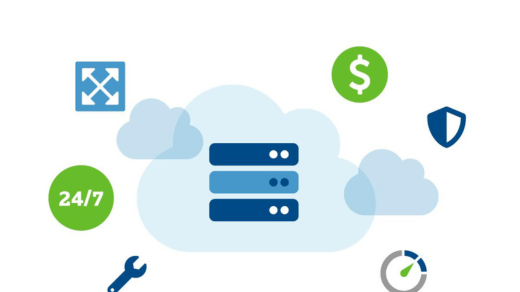Green hosting is a sustainable approach to web hosting that focuses on reducing the environmental impact of data centers and servers. Here are 30 key points discussing the pros and cons of green hosting solutions:
1. Reduced Carbon Emissions:
- Pros: Green hosting reduces the carbon footprint of data centers.
- Cons: Not all hosting providers offer green options.
2. Renewable Energy Usage:
- Pros: Green hosts often use renewable energy sources.
- Cons: Transitioning to renewable energy can be expensive.
3. Energy-Efficient Servers:
- Pros: Green hosting providers use energy-efficient hardware.
- Cons: Energy-efficient servers may be costlier upfront.
4. Environmental Certifications:
- Pros: Green hosts may have certifications like LEED or EPA Green Power Partner.
- Cons: Certification requirements can be stringent.
5. Eco-Friendly Data Centers:
- Pros: Green hosting data centers employ eco-friendly technologies.
- Cons: Upgrading data centers can be costly.
6. Carbon Offsetting:
- Pros: Some green hosts invest in carbon offset programs.
- Cons: Offsetting may not fully eliminate emissions.
7. Sustainable Practices:
- Pros: Green hosts adopt sustainable data center practices.
- Cons: Implementation can be resource-intensive.
8. Tree Planting Initiatives:
- Pros: Some green hosting providers plant trees to offset emissions.
- Cons: Reforestation efforts may take time to yield results.
9. Energy-Efficient Cooling:
- Pros: Efficient cooling systems reduce energy consumption.
- Cons: Cooling upgrades require significant investment.
10. Green Hosting Certifications: – Pros: Certifications like Green Web Hosting and Green Energy Certified validate providers. – Cons: Certification criteria can be strict.
11. Lower Energy Bills: – Pros: Energy-efficient servers can lead to cost savings. – Cons: Initial server investments may be higher.
12. Reduced Electronic Waste: – Pros: Prolonged server lifecycles reduce electronic waste. – Cons: Older servers may not support the latest technologies.
13. Resource Optimization: – Pros: Green hosting encourages resource-efficient practices. – Cons: Optimization efforts can be time-consuming.
14. Education and Awareness: – Pros: Green hosting providers raise environmental awareness. – Cons: Not all users prioritize environmental concerns.
15. Green Marketing Opportunities: – Pros: Green hosting can be a unique selling point for businesses. – Cons: Greenwashing (misleading environmental claims) can damage reputation.
16. Environmental Impact Reports: – Pros: Green hosts provide reports on their environmental impact. – Cons: Data reporting can be complex.
17. Support for Renewable Energy Credits (RECs): – Pros: RECs support the development of renewable energy sources. – Cons: RECs may not fully offset non-renewable energy usage.
18. Green Hosting Communities: – Pros: Green hosting communities share sustainable practices. – Cons: Limited adoption among hosting providers.
19. Ethical Sourcing: – Pros: Green hosting promotes ethical hardware sourcing. – Cons: Ethical sourcing can increase hardware costs.
20. Corporate Social Responsibility (CSR): – Pros: Green hosting aligns with CSR objectives. – Cons: CSR initiatives can be resource-intensive.
21. Server Virtualization: – Pros: Virtualization reduces server hardware and energy consumption. – Cons: Virtualization may require specialized skills.
22. Energy-Efficient Data Centers Location: – Pros: Green hosts may choose locations with access to renewable energy. – Cons: Data center relocation can be costly.
23. User Education: – Pros: Green hosts educate users on sustainable practices. – Cons: User adoption varies.
24. Long-Term Sustainability: – Pros: Green hosting supports long-term environmental sustainability. – Cons: Long-term goals may require significant investments.
25. Incentives for Green Practices: – Pros: Some hosts offer incentives for adopting eco-friendly practices. – Cons: Incentives may not offset all costs.
26. Green Data Centers Partnerships: – Pros: Partnerships with green data centers enhance sustainability. – Cons: Partnership negotiations can be complex.
27. Energy-Efficient Hosting Plans: – Pros: Green hosts offer energy-efficient hosting options. – Cons: Energy-efficient plans may have limitations.
28. Renewable Energy Supplier Contracts: – Pros: Hosting providers contract renewable energy sources. – Cons: Contracts can have financial implications.
29. Transparent Environmental Policies: – Pros: Green hosts have clear environmental policies. – Cons: Policy compliance requires ongoing monitoring.
30. Green Hosting Industry Growth: – Pros: The growth of green hosting options promotes sustainability. – Cons: Not all hosting





